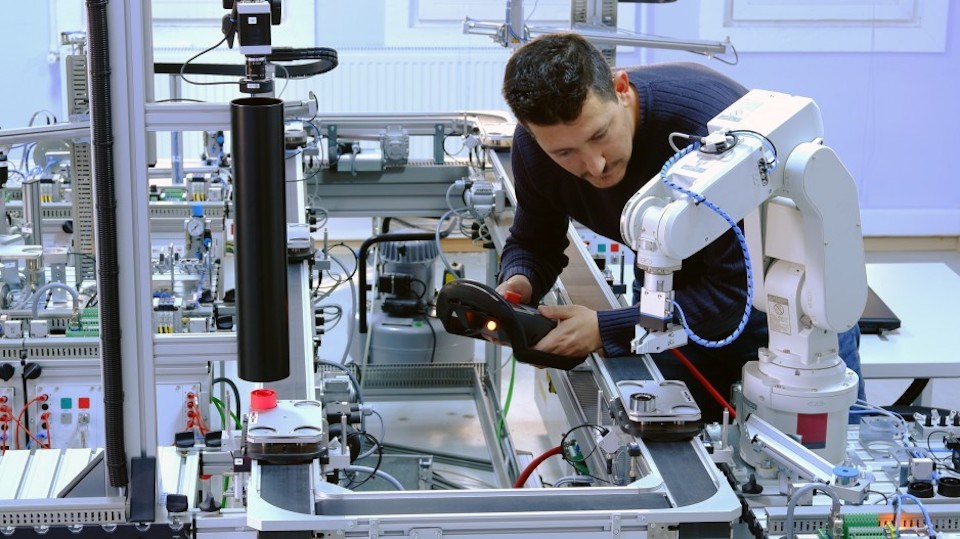Michael Anderson and his team spent much of 2022 on the hunt for what he describes as “Goldilocks partners” for his Vancouver tech firm Expeto Wireless Inc.
The company specializes in simplifying enterprise networking over private and public mobile networks. And in a bid to boost growth, Anderson was after new investors to serve as those coveted Goldilocks partners.
But new investors in the venture capital space have been proving more challenging to come by as central banks across the globe hike rates to curb inflation. All that cheap capital flowing in abundance at the outset of the pandemic has since given way to what experts at business services firm KPMG Canada are calling a “return to normal.”
“Despite, let's say, the economic headwinds, there are a tremendous amount of very wonderful venture firms out there waiting to find the right deals,” Anderson told BIV following this week’s announcement Expeto has raised US$12 million in a Series B funding round.
While existing investors like Lavrock Ventures, Mistral Venture Partners and Vancouver-based Evok Innovations were good to participate in the latest funding round, Expeto still needed to uncover new investors amid a rapidly cooling climate for venture capital.
“My peers would say in the industry, you have to go out there and talk to a lot of folks to really find that match, to find that firm that has – beyond just capital – but really the expertise and experience and really a fundamental thesis about the area that a company like Expeto is focused on,” Anderson said.
Expeto has developed a platform that helps businesses better manage wireless networks for their operations. For example, if device like a drone or even a robot is equipped with the appropriate SIM card, Expeto’s platform helps clients ensure private cellular coverage on a worksite such as a mine remains reliable and those devices remain connected to the network.
In addition to the existing investors, the latest funding round eventually drew new investors Sorenson Capital, 5G Open Innovation Lab and Samsung Next. The company’s total financing now rings in at $20 million.
But such fundraising successes have been growing scarcer in recent months.
Venture capital funding in Canada dropped to US$1.4 billion in the third quarter of 2022 – down significantly from the US$2.5 billion raised during the same period one year ago, according to an October report from KPMG.
“This is the lowest quarter in nearly two years as we continue to see quarter-over-quarter declines in 2022,” KPMG Canada said in a note.
“What we are seeing now is a return to normal … Investors are more cautious as they brace for a possible recession amid significant market volatility and economic uncertainty. That’s led them to be highly selective.”
For Brent Holliday, the current state of raising venture seemed inevitable by the start of the summer.
“There was so much capital that shifted towards tech,” the CEO of Vancouver-based Garibaldi Capital Advisors Ltd., which provides mergers and acquisitions (M&A) and capital-raising advisory services to tech companies, told BIV earlier this month. “You could see a supply-side bubble coming a mile away. There was just too much money.”
But a number of B.C. tech firms are proving resilient amid this return to normal levels of venture capital investment.
Both Elastic Path Software Inc. and MineSense Technologies Ltd. revealed on Wednesday the close of significant funding rounds that drew $30 million and US$42 million, respectively.
With the close of Elastic Path’s latest round, the Vancouver-based software firm has raised a total of $90 million this year.
“Right now, there's still plenty of investment available for companies with strong fundamentals that are pursuing very exciting markets,” said Elastic Path CEO Jamus Driscoll, whose company specializes in back-end software for e-commerce platforms.
The company will be using the fresh capital to improve its “composable” commerce offerings to brands. Composable commerce is a relatively new concept, referring to efforts to make it easier for brands to assemble or “compose” different e-commerce functions from different vendors.
Driscoll likened typical e-commerce offerings to a die-cast toy whose parts can’t be moved. Composable commerce, he said, is more akin to toy Lego pieces that can be easily moved around and modified to create a desired shape.
“We may find ourselves in a somewhat fortunate position but we've got very strong fundamentals. We're at the forefront of doing something that we think is going to be a really fundamental shift in a very large market over the next couple of years. And there's still appetite for growth in that market and still appetite for investment,” he said.
“If you're in that position, then there's still capital to be raised.”




